In recent years, the contact grill market has seen a surge in popularity, particularly in Europe and the USA. This trend has been further fueled by the rise of private label products, which offer consumers a unique blend of quality, affordability, and brand loyalty. As we delve into the intricacies of this evolving sector, it becomes clear that understanding the factors driving this growth, the diverse consumer base, the competitive landscape, and the distribution channels is crucial. Additionally, examining consumer trends and the challenges and opportunities within the market will provide a comprehensive view of the future outlook for private label contact grills. By exploring these aspects, we can appreciate the pivotal role that private label brands play in shaping the contact grill industry.
Introduction to Contact Grill Market in Europe and the USA
The contact grill market has seen a surge in popularity across Europe and the USA, as consumers seek convenient and healthy cooking solutions. These compact, countertop appliances have become a staple in many homes, offering a versatile way to prepare a variety of foods. Let’s delve into the market dynamics in these regions to understand the trends and opportunities shaping the contact grill industry.
In Europe, the contact grill market is characterized by a diverse range of brands and product offerings. From the United Kingdom to Germany, France, and Italy, the demand for contact grills has been steadily growing. This is due in part to the increasing health consciousness among consumers, who are looking for alternatives to traditional frying methods that can be less healthy.
The American market, on the other hand, has seen contact grills gain traction as a result of the convenience they offer. Busy lifestyles have led to a preference for quick and easy meal preparation, and contact grills fit this bill perfectly. The variety of grilling options, from burgers and steaks to vegetables and seafood, has made these appliances a must-have for many American households.
One of the key drivers behind the growth of the contact grill market in both regions is the convenience factor. These appliances are designed to be user-friendly, with easy-to-use controls and a compact size that makes them ideal for small kitchens and apartments. Additionally, the ability to grill directly on the countertop reduces the need for outdoor grilling equipment, making it accessible for those without a backyard or patio.
In Europe, the market is also influenced by the popularity of outdoor cooking and social gatherings. Contact grills offer a portable solution that can be taken to picnics, camping trips, or even tailgating events. The portability and ease of use have made them a favorite among outdoor enthusiasts and those who enjoy entertaining.
When it comes to product innovation, the contact grill market in both Europe and the USA is witnessing a wave of technological advancements. New features such as adjustable heat settings, non-stick surfaces, and integrated cleaning systems are becoming standard in many models. These innovations not only enhance the cooking experience but also cater to the desires of environmentally conscious consumers who prefer appliances that are easy to maintain and clean.
Brand diversity is another hallmark of the contact grill market. In Europe, well-established kitchen appliance brands such as Tefal, Breville, and Russell Hobbs dominate the market, offering a range of contact grills that cater to different price points and consumer preferences. Meanwhile, in the USA, brands like George Foreman and Hamilton Beach have become synonymous with the contact grill category, with their products often seen as a staple in American kitchens.
In terms of market trends, there is a noticeable shift towards private label contact grills in both regions. Retailers are increasingly offering their own branded contact grills as a way to differentiate their product offerings and provide value to price-sensitive consumers. These private label products often feature competitive pricing and comparable features to national brands, making them an attractive option for budget-conscious shoppers.
The European market is particularly ripe for private label growth, as consumers are often more open to purchasing store brands when it comes to kitchen appliances. This trend is driven by the perception that private label products offer good quality at a lower cost, and the convenience of having everything under one roof.
Similarly, in the USA, private label contact grills are gaining momentum, with many retailers finding success in this segment. The competitive pricing and often comparable quality to national brands make private label products a compelling choice for consumers looking to save money without compromising on performance.
In conclusion, the contact grill market in Europe and the USA is a dynamic and evolving sector. The convenience, versatility, and health benefits of contact grills have made them a staple in many kitchens. As consumer preferences continue to shift towards more convenient and affordable cooking solutions, the private label segment is poised to play a significant role in the future of the contact grill market.
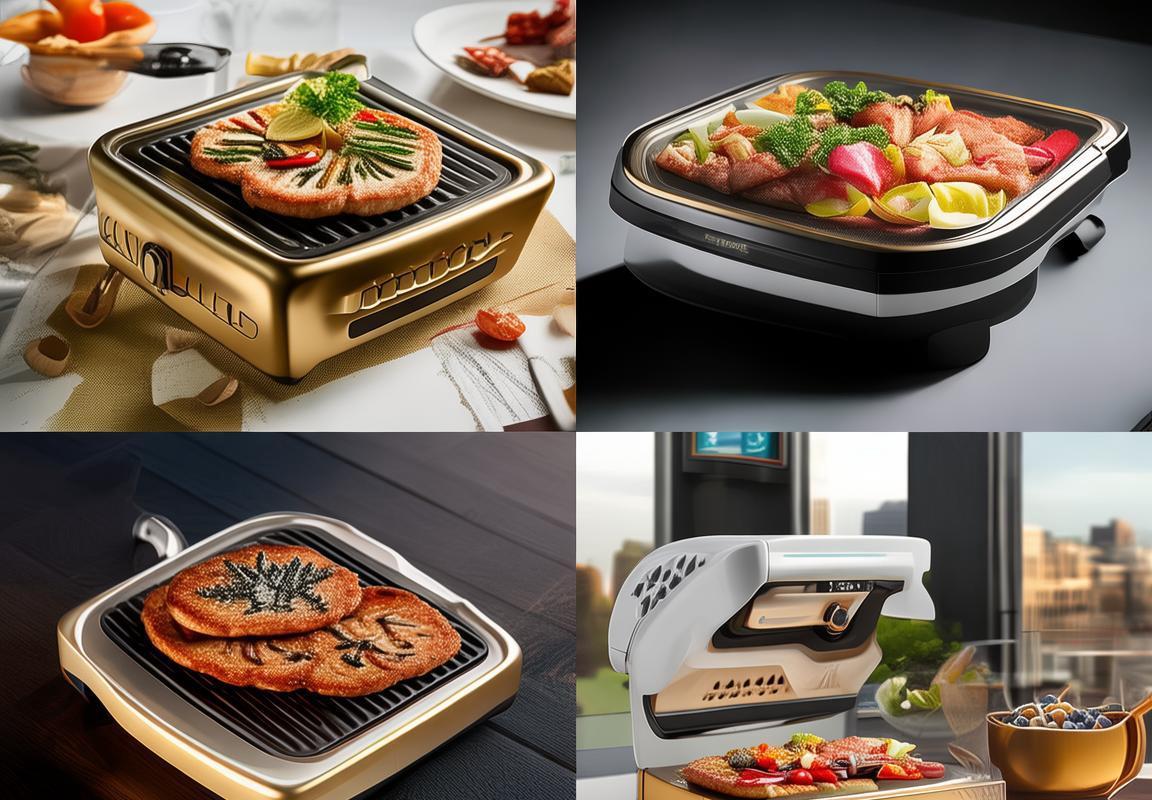
The Rising Popularity of Private Label Contact Grills
The surge in the popularity of private label contact grills has been nothing short of remarkable. These compact, countertop cooking appliances have found their way into the hearts and kitchens of consumers across Europe and the USA, offering a convenient and efficient way to cook a variety of foods. From simple sandwiches to gourmet steaks, the versatility of contact grills has made them a staple in many homes.
One of the key factors contributing to this popularity is the increasing health consciousness among consumers. With a focus on grilling rather than frying, contact grills provide a healthier alternative for cooking that reduces the need for excessive oil. This health-forward approach has resonated with health-conscious consumers, who are always on the lookout for ways to incorporate more nutritious meals into their diets.
Moreover, the convenience factor cannot be overstated. Contact grills are compact and easy to store, making them perfect for small kitchens or for those who are short on space. Their quick cooking times and straightforward operation have made them a go-to appliance for busy individuals and families alike. The ability to cook a variety of foods, from vegetables to meats, all on one appliance, adds to their appeal.
The rise of private label brands has also played a significant role in the growing popularity of contact grills. These brands offer consumers a cost-effective alternative to well-known national brands, without compromising on quality. The competitive pricing of private label contact grills has made them more accessible to a wider audience, including price-sensitive shoppers who are looking for value without sacrificing performance.
In Europe, the trend towards private label products has been particularly strong. Supermarkets and discount stores have been at the forefront of this movement, offering a range of private label contact grills that cater to different budgets and cooking preferences. The success of these private label products can be attributed to their strong value proposition, which includes not only competitive pricing but also reliable performance and innovative features.
Similarly, in the USA, the private label market has seen significant growth, with many consumers opting for these brands over national ones. The convenience stores and big-box retailers have been instrumental in promoting these products, often featuring them in their end-cap displays and highlighting their affordability and quality. This has helped to build consumer trust and loyalty, further driving the popularity of private label contact grills.
The marketing strategies employed by private label brands have also been effective in boosting their market share. By leveraging the power of social media and influencer partnerships, these brands have been able to reach a broader audience and create a buzz around their products. Consumers are more likely to try a private label contact grill if they see it being used and praised by someone they trust or follow online.
Moreover, the customization options offered by private label brands have been a hit with consumers. Many retailers allow customers to choose from a variety of grill plates, allowing them to tailor the appliance to their specific needs. This level of personalization is something that national brands may not always offer, making private label contact grills even more attractive to consumers looking for a unique cooking experience.
The rise of private label contact grills has also been influenced by the growing demand for outdoor cooking. With more people spending time at home and entertaining outdoors, the need for a reliable and portable cooking solution has increased. Private label brands have capitalized on this trend by offering portable and easy-to-use contact grills that are perfect for tailgating, camping, or simply enjoying a cookout in the backyard.
In conclusion, the popularity of private label contact grills in Europe and the USA is a testament to the changing consumer landscape. As health, convenience, and value continue to be top priorities, private label brands are stepping up to meet these demands with innovative products that offer a great balance of quality and affordability. The future looks bright for private label contact grills, as they continue to capture the hearts and minds of consumers seeking a healthier, more convenient cooking experience.
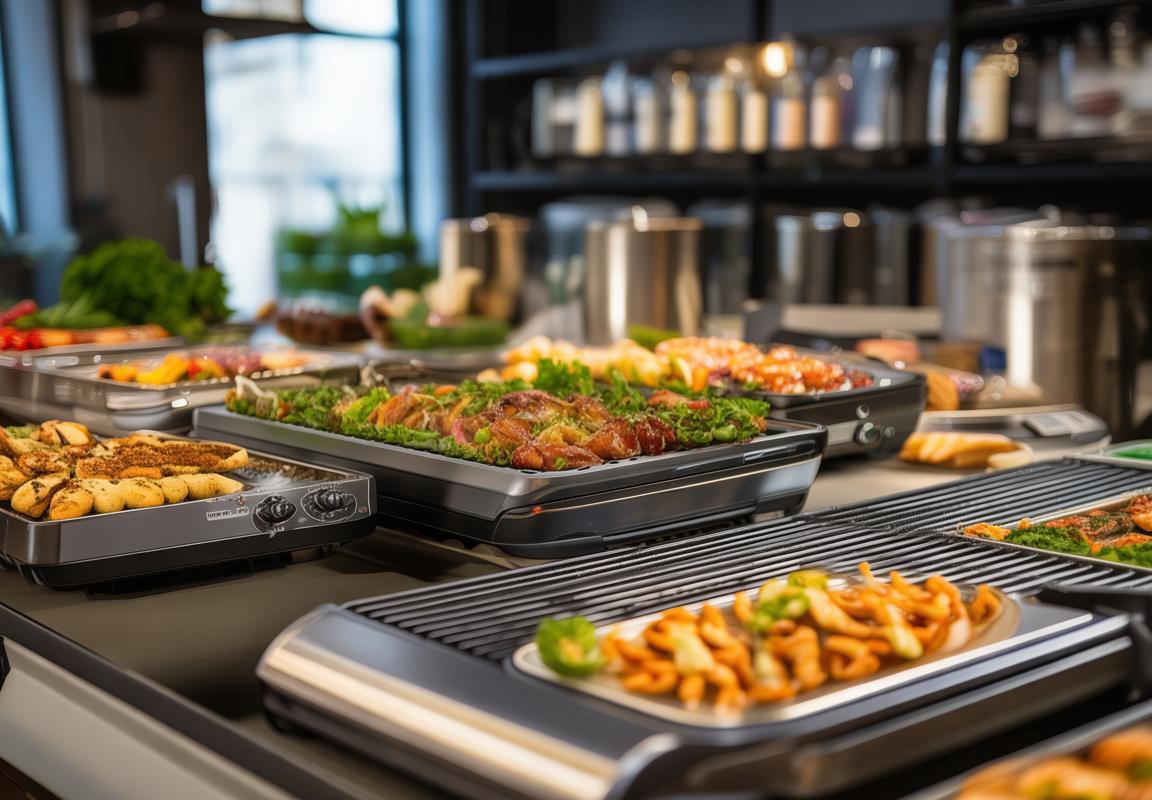
Key Factors Driving the Growth of Private Label Contact Grills
The surge in popularity of private label contact grills can be attributed to a multitude of factors, each contributing to the market’s dynamic growth. From technological advancements to evolving consumer preferences, let’s delve into the key drivers that are propelling the private label contact grill market forward.
Consumer Shift Towards Healthier Cooking MethodsOne significant factor fueling the growth of private label contact grills is the increasing awareness of health and wellness among consumers. With a growing number of individuals looking to minimize oil usage and adopt healthier cooking techniques, contact grills have emerged as a popular choice. The ability to cook food with minimal oil or fat has made private label contact grills an appealing option for health-conscious shoppers.
Convenience and Speed in CookingIn the fast-paced world we live in, convenience is a key driver for many consumers. Private label contact grills offer a quick and easy way to cook a variety of dishes, from sandwiches and burgers to vegetables and seafood. The compact design and simple operation make them a convenient kitchen appliance that doesn’t require much preparation time, fitting seamlessly into the lifestyles of busy individuals and families.
Cost-Effectiveness and AccessibilityPrivate label brands have long been known for their competitive pricing and wide availability. Contact grills under private label brands often come at a lower price point compared to their name-brand counterparts, making them more accessible to a broader market. This affordability has attracted budget-conscious consumers who are looking for quality products without breaking the bank.
Innovation in Design and FunctionalityAdvancements in design and functionality have made private label contact grills more versatile and user-friendly. Features like adjustable temperature controls, non-stick surfaces, and removable grids have become standard in many models, enhancing the cooking experience and ensuring that the grill can be used for a variety of foods. This innovation has widened the appeal of private label contact grills to a broader audience.
The Impact of Digital Marketing and E-commerceThe rise of digital marketing and e-commerce platforms has significantly boosted the sales of private label contact grills. Companies are leveraging social media, influencer partnerships, and online marketplaces to reach potential customers more effectively. The ability to showcase product features and customer testimonials in a digital format has helped private label brands to establish credibility and trust among consumers.
Retailer Focus on Private Label BrandsRetailers have increasingly turned to private label brands to diversify their product offerings and cater to the specific needs of their customer base. The collaboration between retailers and private label manufacturers allows for more tailored products that resonate with local tastes and preferences. This partnership has resulted in a wider range of contact grill options being available in stores, thereby driving up sales.
The Influence of Culinary Culture and Social CookingAs culinary trends evolve, so does the popularity of different cooking methods. Contact grilling has seen a surge in interest due to its ability to produce excellent flavor profiles and its versatility in grilling various types of food. The growing trend of social cooking, where friends and family gather to prepare and enjoy meals together, has also contributed to the popularity of private label contact grills, as they offer a convenient way to cook communal dishes.
Economic Factors and Recession-Resistant DemandDuring economic downturns, consumers often look for value-driven options, and private label products have historically performed well in such conditions. Contact grills, being a relatively low-cost kitchen appliance, are seen as a recession-resistant purchase. As a result, even in challenging economic times, there remains steady demand for private label contact grills.
Sustainability and Eco-Friendly PracticesLastly, the growing trend towards sustainability has influenced the consumer choice for private label contact grills. Many consumers are becoming more conscious of their environmental impact and are choosing products that are manufactured with sustainable practices in mind. Private label brands that prioritize eco-friendly materials and production methods are gaining a competitive edge in the market.
In conclusion, the growth of the private label contact grill market is driven by a combination of health consciousness, convenience, cost-effectiveness, innovation, digital marketing, retailer partnerships, culinary trends, economic factors, and sustainability. These multifaceted drivers are shaping the market’s trajectory and ensuring its continued growth in the coming years.

Market Segmentation: Who’s Buying Private Label Contact Grills?
Private label contact grills have seen a surge in popularity, and understanding the diverse group of consumers driving this trend is crucial for manufacturers and retailers. The market is segmented by various demographics, lifestyle preferences, and purchasing behaviors, each playing a role in the growth of private label contact grills.
Younger demographics, particularly millennials and Gen Z, are at the forefront of this trend. These generations are known for their preference for unique and personalized products, and private label brands offer a sense of exclusivity that mass-market brands might lack. They are also more likely to shop online, where private label options are readily available through various e-commerce platforms.
Health-conscious consumers are another key segment. The rising awareness of the benefits of grilling over frying has made contact grills a popular choice for those looking to maintain a healthy diet. These individuals often seek out private label options because they perceive them as more affordable and often just as high-quality as branded alternatives.
Budget-conscious shoppers are drawn to private label contact grills due to their cost-effectiveness. These consumers are looking for quality products without the premium price tag that often comes with name brands. They appreciate the value proposition that private label brands offer, allowing them to enjoy the convenience of a contact grill without breaking the bank.
Culinary enthusiasts who enjoy experimenting with different cooking techniques and recipes are also a significant segment. Private label contact grills often come with various features and accessories that cater to these consumers’ desire for versatility. They may switch between different private label brands to explore new functionalities and designs.
The growing trend of home entertaining has also contributed to the popularity of private label contact grills. With more people hosting gatherings and potlucks, these grills offer a convenient way to prepare a variety of dishes for a crowd. Private label brands are capitalizing on this by offering grills that are both efficient and stylish, appealing to those who want to make a good impression without spending a fortune.
Additionally, there’s a segment of consumers who are environmentally conscious. By choosing private label products, they may feel they are supporting local businesses or sustainable practices, as private label brands often source from a variety of suppliers and may have a more flexible approach to their supply chains.
Retailers are also a key segment in the market for private label contact grills. They often use these products to differentiate their offerings from competitors and to provide their customers with a range of affordable options. Supermarkets, department stores, and specialty kitchen stores all carry private label contact grills, catering to the needs of their diverse customer bases.
Another segment to consider is the elderly and those with physical limitations. These consumers may find private label contact grills to be more user-friendly, with features like adjustable heat settings and compact designs that make cooking easier and safer.
The corporate and institutional market also plays a role. Companies and organizations often purchase private label contact grills in bulk for events, conferences, and employee wellness programs. They appreciate the cost savings and the ability to tailor the branding to their specific needs.
In conclusion, the market for private label contact grills is segmented across a wide range of consumers, each with their own motivations and preferences. From young trendsetters to health-conscious shoppers and budget-minded consumers, the growth of private label contact grills is a testament to the diverse needs and desires of today’s consumer landscape.

Competitive Landscape: Key Players in the Private Label Contact Grill Sector
In the private label contact grill sector, several key players have emerged as dominant forces, each bringing unique strengths and strategies to the table. Here’s a closer look at some of the key players shaping this competitive landscape:
-
Global Appliance Brands: Many established appliance manufacturers have ventured into the private label market, leveraging their brand recognition and production capabilities. These brands often offer a range of contact grills that cater to different price points and consumer preferences, from budget-friendly models to premium, high-tech units.
-
Specialized Cookware Companies: There are firms that specialize solely in cookware and kitchen appliances. They focus on innovation and quality, often producing private label contact grills with unique features that set them apart from the competition. These companies might not have the same brand recognition as the larger appliance brands but often have a loyal customer base.
-
Retailers and Distributors: Some retailers and distributors have capitalized on the private label trend by creating their own branded contact grills. This allows them to offer customers a wider variety of products and potentially higher profit margins. These brands often benefit from the trust and loyalty that customers have for the retailer itself.
-
Online Marketplaces and E-Commerce Platforms: With the rise of online shopping, several online marketplaces and e-commerce platforms have started offering private label contact grills. These platforms can quickly adapt to market trends and consumer demands, often providing a vast array of options at competitive prices.
-
Small to Medium Enterprises (SMEs): SMEs have found a niche in the private label contact grill market by focusing on niche markets or specific features. They might offer grills that are designed for outdoor use, eco-friendly models, or grills with specific cooking techniques in mind. These companies often provide a more personalized approach to product development.
-
Innovation Leaders: Some players in the market are known for their innovation in contact grill technology. They continuously introduce new features, such as adjustable heat settings, non-stick surfaces, and advanced cooking functions. These brands often target tech-savvy consumers who are looking for the latest in kitchen gadgetry.
-
Value-Driven Brands: There are private label brands that focus on providing high-quality grills at affordable prices. These brands appeal to budget-conscious consumers who are looking for a good value without compromising on performance.
-
Health and Wellness Focused Brands: With the growing trend towards healthier eating, some private label contact grill brands are emphasizing features that make it easier for consumers to cook healthy meals at home. This includes models with healthier cooking surfaces and temperature control options that prevent the need for excessive oil.
-
International Brands Expanding into the Market: Some well-known international brands have entered the private label market, expanding their reach into new regions. They bring with them a global perspective and often have the resources to invest in marketing and distribution.
-
Collaborative Partnerships: Finally, there are companies that have formed partnerships to create private label contact grill lines. These collaborations might involve a manufacturer and a retailer, or even a technology company and a cookware brand, combining their expertise to create unique products.
Each of these key players contributes to the dynamic and diverse competitive landscape of the private label contact grill sector, offering consumers a wide range of options that cater to various needs and preferences. From the simplicity of a basic grill to the sophistication of a high-tech cooking appliance, the market continues to evolve, driven by consumer demand and technological advancements.
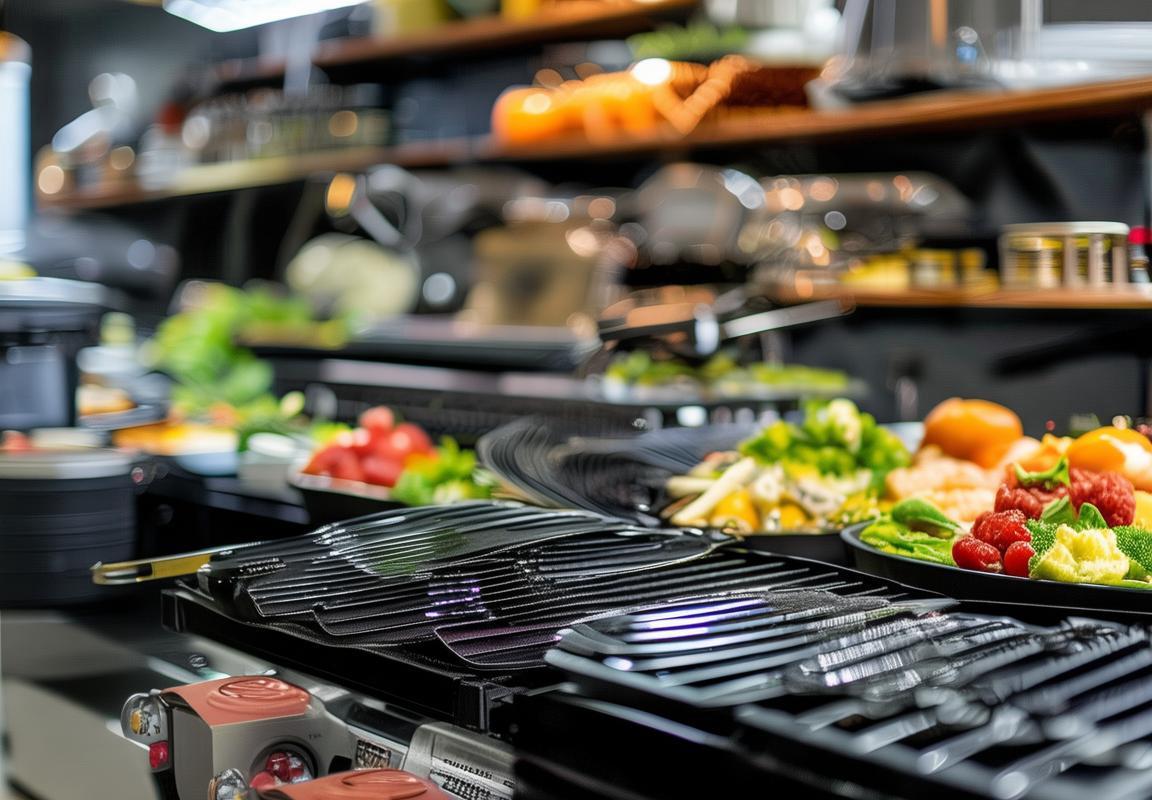
Distribution Channels: How Private Label Contact Grills Reach Consumers
Private label contact grills have become a significant part of the kitchen appliances market, offering a unique blend of affordability and brand recognition. The way these products reach consumers is a testament to the diverse and sophisticated distribution channels that have been established. Here’s an inside look at how private label contact grills navigate the landscape to get into consumers’ hands:
Retailers play a crucial role in the distribution of private label contact grills. These grills are often found in the appliances section of department stores, specialty kitchen shops, and even mass merchants. Retail partnerships are key, with many private label brands working closely with these stores to ensure their products are prominently displayed and easily accessible to shoppers.
Online retail has seen a meteoric rise, and private label contact grills have followed suit. Websites like Amazon, Wayfair, and eBay have become go-to destinations for consumers seeking a variety of kitchen appliances. Private label brands leverage these platforms not only for direct sales but also for the added credibility that comes with being featured alongside established names.
Specialty kitchen and home stores have also become pivotal in the distribution of private label contact grills. These outlets cater to consumers who are specifically looking for high-quality kitchenware and offer a more curated shopping experience. Private label brands often target these stores to reach customers who are more likely to invest in durable and reliable cooking equipment.
Cookware and kitchen supply shows have become a popular venue for distributing private label contact grills. These events attract a niche audience interested in upgrading their kitchen tools and gadgets. Private label brands use these occasions to showcase their products and build brand awareness through live demonstrations and product sampling.
Wholesale distribution is another key channel for private label contact grills. Distributors purchase large quantities of these grills from manufacturers and then sell them to various retailers, both online and offline. This method allows private label brands to reach a wide range of stores with a single transaction, streamlining the distribution process.
In some cases, private label brands opt to distribute their contact grills through direct-to-consumer channels. This can be done through their own e-commerce websites, where they can control the shopping experience from start to finish. Direct-to-consumer sales provide valuable data on customer preferences and buying behaviors, which can inform future product development.
Home improvement centers and big-box stores are also part of the distribution mix for private label contact grills. These stores often have a large footprint and draw in customers looking for a one-stop shopping experience. The presence of private label grills in these locations can expose them to a broader audience, including those who may not typically visit specialty kitchen stores.
The rise of online marketplaces like Facebook Marketplace and Craigslist has provided another avenue for the distribution of private label contact grills. These platforms allow smaller retailers or individuals to sell products without the need for a physical store, expanding the potential customer base.
Social media marketing has become a powerful tool for reaching consumers with private label contact grills. Brands often use Instagram, Pinterest, and YouTube to showcase their products in action, leveraging influencer partnerships to extend their reach. This type of marketing not only attracts new customers but also fosters a sense of community around the brand.
Lastly, the growth of membership-based retail models like Costco and Sam’s Club has opened new doors for private label contact grills. These clubs offer bulk purchases at discounted prices, making private label products an attractive option for members looking for quality appliances without the premium price tag.
In conclusion, the distribution channels for private label contact grills are varied and extensive, covering everything from traditional retail partnerships to the latest digital marketplaces. By diversifying their distribution strategies, these brands can effectively reach consumers through multiple touchpoints, ensuring that their products are seen, tried, and ultimately purchased.
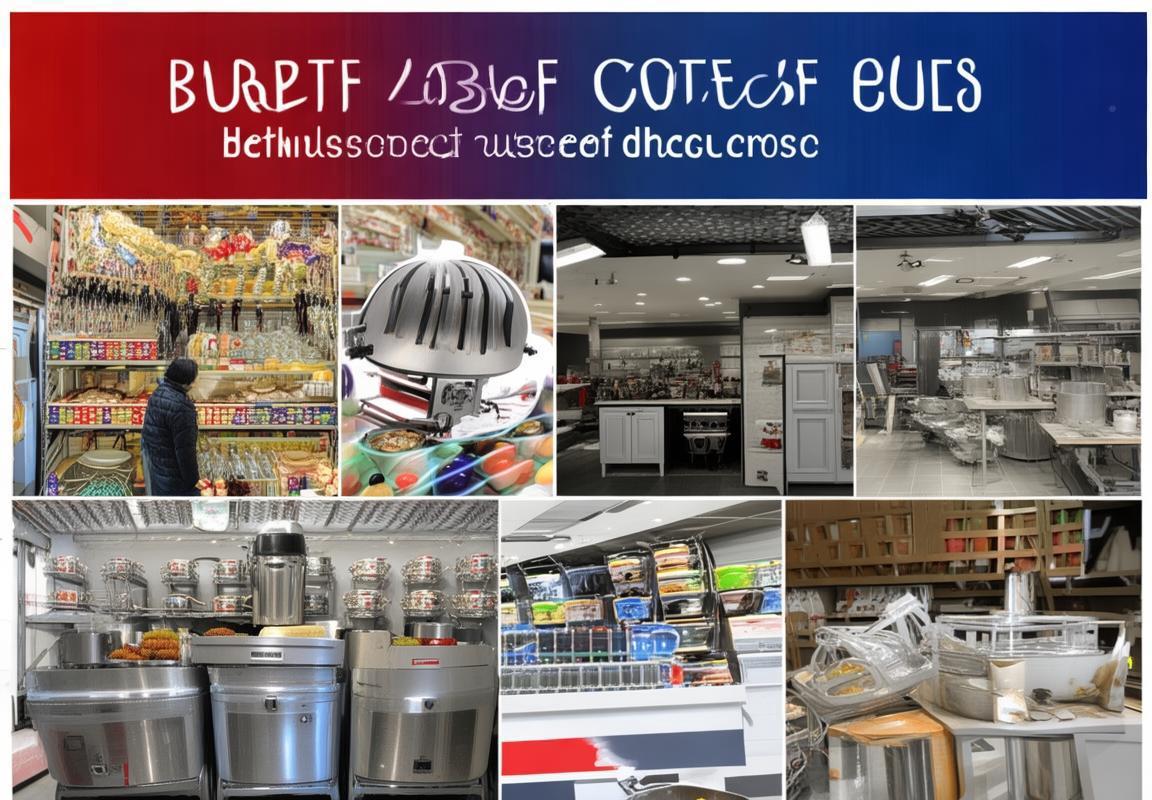
Consumer Trends: What Are Customers Looking for in Private Label Contact Grills?
Consumers today are more discerning than ever, especially when it comes to kitchen appliances. In the realm of private label contact grills, there are several key trends shaping customer preferences:
-
Sleek Design and AestheticsCustomers are increasingly drawn to contact grills that offer a modern and sleek design. The aesthetic appeal of an appliance plays a significant role in the decision-making process, as consumers seek products that not only perform well but also complement their kitchen decor.
-
Easy to Clean and MaintainOne of the primary concerns for consumers is the ease of cleaning and maintenance. Private label contact grills that come with non-stick surfaces, removable parts, and intuitive designs for quick cleaning are highly sought after. The convenience of maintaining the grill without much effort is a major selling point.
-
Versatility in Cooking OptionsThe ability to cook a variety of foods is a crucial factor. Consumers are looking for private label contact grills that can handle different types of cooking, from searing steaks to grilling vegetables. The more versatile the grill, the more likely it is to appeal to a wider audience.
-
Portability and Compact SizeIn today’s fast-paced world, portability is a significant advantage. Many consumers are interested in private label contact grills that are compact and can be easily moved from one location to another. Whether it’s for outdoor cooking or indoor space constraints, a grill that can be tucked away or carried with ease is highly valued.
-
Energy EfficiencyWith growing environmental consciousness, energy efficiency has become a key consideration. Consumers are more likely to choose a private label contact grill that operates with minimal energy consumption, not only for cost savings but also for its eco-friendly qualities.
-
Smart Features and TechnologyThe integration of smart features into kitchen appliances has gained traction. Private label contact grills with built-in timers, temperature controls, and digital displays are becoming popular. Customers appreciate the convenience of technology that allows for precise cooking and hands-free operation.
-
Health and SafetyHealth-conscious consumers are gravitating towards private label contact grills that offer features that promote safe and healthy cooking. This includes non-toxic materials, even heat distribution to prevent burning, and easy-to-use safety locks for child protection.
-
Value for MoneyA significant portion of consumers looks for value for money. Private label contact grills that offer a good balance between price and quality are more likely to be purchased. Customers are willing to invest in a grill that meets their needs without breaking the bank.
-
Brand Reputation and TrustThe reputation of the brand and the trust it inspires are crucial. Consumers are more likely to purchase from brands they know and trust, especially when it comes to private label products. A strong brand image can significantly influence buying decisions.
-
Online Reviews and RecommendationsIn the digital age, online reviews and personal recommendations have a substantial impact on purchasing decisions. Consumers often rely on the experiences and insights of others when choosing a private label contact grill. Positive reviews and social proof can sway the decision in favor of a particular product.
-
Customization and PersonalizationSome consumers are interested in private label contact grills that offer customization options, such as adjustable cooking plates or additional accessories. Personalization can make the product more appealing and tailored to individual preferences.
-
Eco-friendly PackagingThe environmental impact of packaging is also a consideration for many consumers. Private label contact grills that come in eco-friendly packaging or are part of a brand committed to sustainability are more likely to be favored.
These trends highlight the evolving demands of consumers in the private label contact grill market, with a focus on convenience, efficiency, and health. As the industry continues to grow, it’s likely that these trends will further shape the development of new products and innovations.
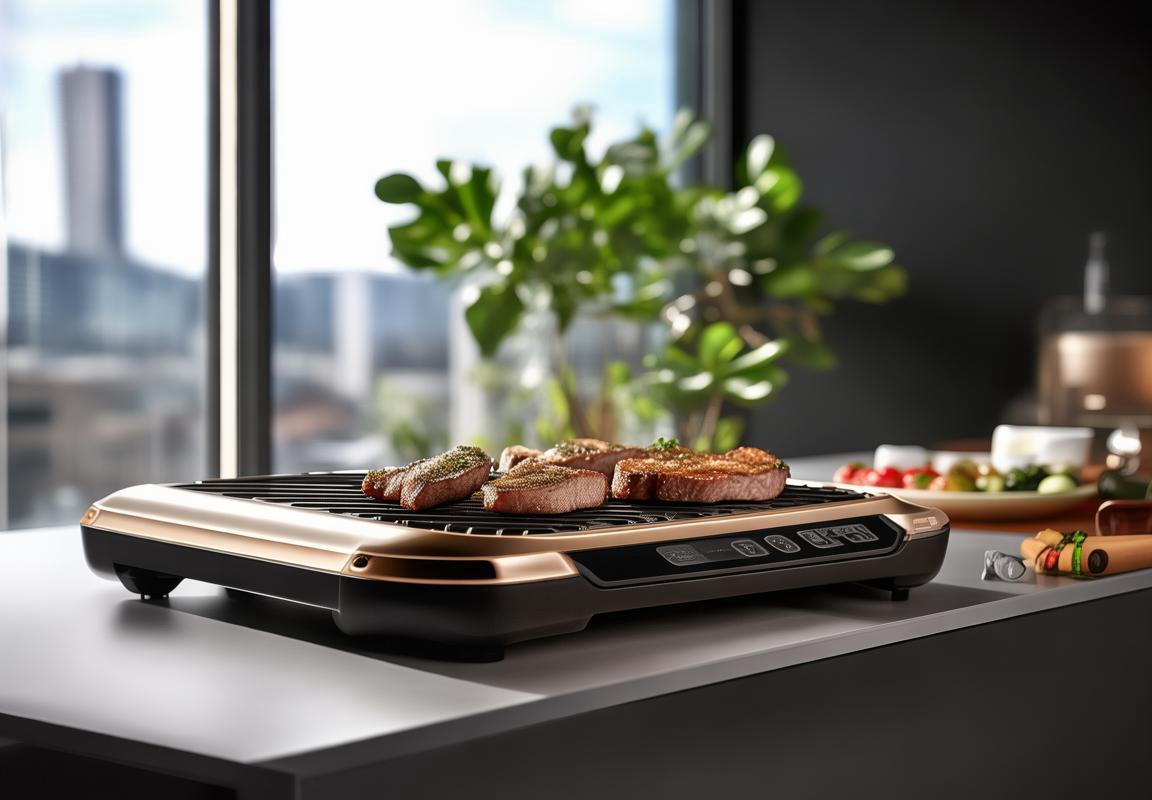
Challenges and Opportunities in the Private Label Contact Grill Market
In the bustling private label contact grill market, challenges and opportunities coexist, shaping the landscape for manufacturers and consumers alike. Navigating these complexities is crucial for stakeholders looking to thrive in this dynamic sector.
Grill technology advancements have introduced new features and functionalities, but with these innovations come challenges in ensuring compatibility and ease of use. Customers seek grills that not only offer cutting-edge technology but also seamless integration into their kitchens. The challenge lies in balancing innovation with user-friendliness, ensuring that the latest features don’t overwhelm the consumer.
Another challenge is the intense competition. The market is crowded with both established brands and emerging players vying for market share. Private label brands must differentiate themselves to stand out, often competing on price, design, and unique selling propositions (USPs). This competition pushes manufacturers to continuously improve their offerings but also necessitates strategic pricing and marketing to maintain a competitive edge.
The rise of eco-conscious consumers has brought sustainability into the forefront. Private label contact grill manufacturers must respond by offering greener options, such as energy-efficient models or those made from recyclable materials. While this presents a challenge in terms of production costs and consumer perception, it also opens up a significant opportunity for brands that can successfully market their eco-friendly credentials.
The shift towards healthier eating habits has spurred demand for contact grills that can cater to various dietary preferences. This includes models that can accommodate gluten-free, low-carb, and vegetarian diets. Meeting these demands requires a focus on versatility and adaptability, which can be a challenge when designing a product that appeals to a wide range of consumers with different health considerations.
Distribution challenges are also prevalent. Private label contact grill brands must find effective ways to get their products onto store shelves and into consumers’ homes. This involves navigating complex supply chains, managing inventory, and ensuring product availability. Additionally, the rise of online shopping has changed the landscape, with consumers now expecting fast and reliable delivery. Adapting to these new distribution models is a challenge but also an opportunity to expand reach and customer satisfaction.
The opportunity in this market lies in understanding and catering to evolving consumer preferences. As health and wellness become more important, there’s a chance to innovate with new features that enhance cooking experiences, such as smart grills that can provide real-time cooking tips or apps that offer recipe inspiration. Brands that can tap into these trends and offer unique value propositions will find a receptive market.
Similarly, the opportunity to leverage data analytics is significant. By analyzing consumer buying patterns and preferences, private label brands can tailor their product offerings to meet specific market needs. This data-driven approach can lead to more efficient production, targeted marketing campaigns, and a better understanding of what consumers truly want.
The market for private label contact grills is ripe with challenges, from technological innovation to distribution logistics. However, these challenges are accompanied by substantial opportunities. Brands that can navigate the complexities of the market, offering innovative solutions that meet consumer demands and embrace sustainability, will find a path to success. It’s a landscape where those who can adapt and excel will not only survive but thrive in the competitive world of private label appliances.
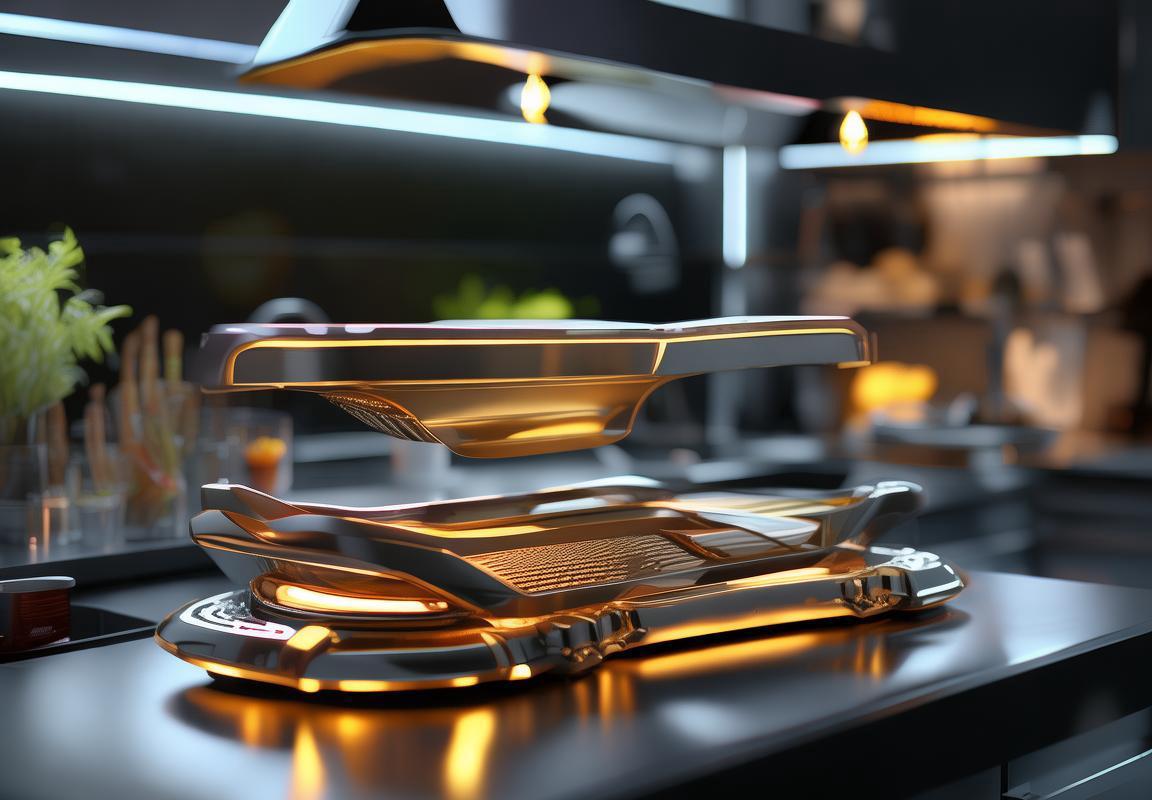
Future Outlook: Predictions and Growth Projections for Private Label Contact Grills
In the ever-evolving landscape of kitchen appliances, private label contact grills are not only capturing a significant market share but are also setting trends. Consumers are increasingly drawn to these branded appliances due to various factors that not only cater to their culinary needs but also align with their values and lifestyles. Let’s delve into what these customers are seeking in private label contact grills.
Consumers are now looking for versatility in their cooking appliances, and private label contact grills are stepping up to the plate. These grills offer not just the classic flat-top grilling but also features like variable heat settings, non-stick surfaces, and sometimes even searing stations, which provide a wide range of cooking options in a single unit. The convenience of having multiple functions in one appliance is a major appeal for busy families and culinary enthusiasts alike.
Eco-conscious consumers are also a significant demographic within the private label contact grill market. Brands that offer energy-efficient models and use sustainable materials for their grills are gaining traction. Customers are not only interested in the immediate benefits of energy savings but also in contributing to a greener planet. Features like removable, dishwasher-safe parts and recyclable packaging are becoming more important as consumers strive for a more sustainable home.
Safety and health are paramount concerns for many shoppers. Private label contact grills that prioritize non-toxic materials, such as PTFE-free non-stick coatings, are resonating with health-conscious consumers. The allure of a product that is safe to use and easy to clean is undeniable. Moreover, with the rise of allergies and sensitivities to certain materials, grills that offer an alternative to traditional cookware are becoming a preferred choice.
The convenience factor is another strong driver in the demand for private label contact grills. Consumers are seeking appliances that are not only easy to use but also easy to store. Compact and portable grills that can be placed on countertops or stored away when not in use are becoming more popular. The ability to have a quality grill without the need for a dedicated outdoor space is an attractive proposition for urban dwellers and anyone looking to save space in their kitchen.
The integration of smart technology in private label contact grills is also a notable trend. With the advent of Bluetooth connectivity and smart cooking apps, users can now monitor and control their grills remotely. This technology not only adds an element of fun but also ensures that food is cooked to perfection every time, even when the grill is not in sight. The convenience of setting timers, checking temperatures, and receiving notifications about the cooking process is a feature that is highly valued by tech-savvy consumers.
Design is another key aspect that influences consumer choices in the private label contact grill market. Modern aesthetics and innovative designs are drawing in consumers who are not just interested in function but also in the appliance’s appearance. Grills that offer sleek designs, vibrant colors, and customizable features are appealing to those who want their kitchen appliances to match their personal style.
Branding and marketing strategies play a crucial role in the private label contact grill market. Brands that effectively communicate the unique selling points of their grills through targeted marketing campaigns are more likely to attract and retain customers. Consumers are more likely to make a purchase if they feel a connection with the brand or if the product is seen as a premium alternative to generic brands.
Lastly, customer reviews and testimonials have a significant impact on purchasing decisions. Word-of-mouth and online feedback are powerful tools for brands to leverage. A positive review from a satisfied customer can often be the deciding factor for someone considering a private label contact grill over a competing brand.
In conclusion, customers looking for private label contact grills are seeking a blend of versatility, sustainability, safety, convenience, technology, design, branding, and trust. As these factors continue to shape the market, it’s clear that private label contact grill brands must continue to innovate and adapt to meet the ever-changing demands of their consumers.
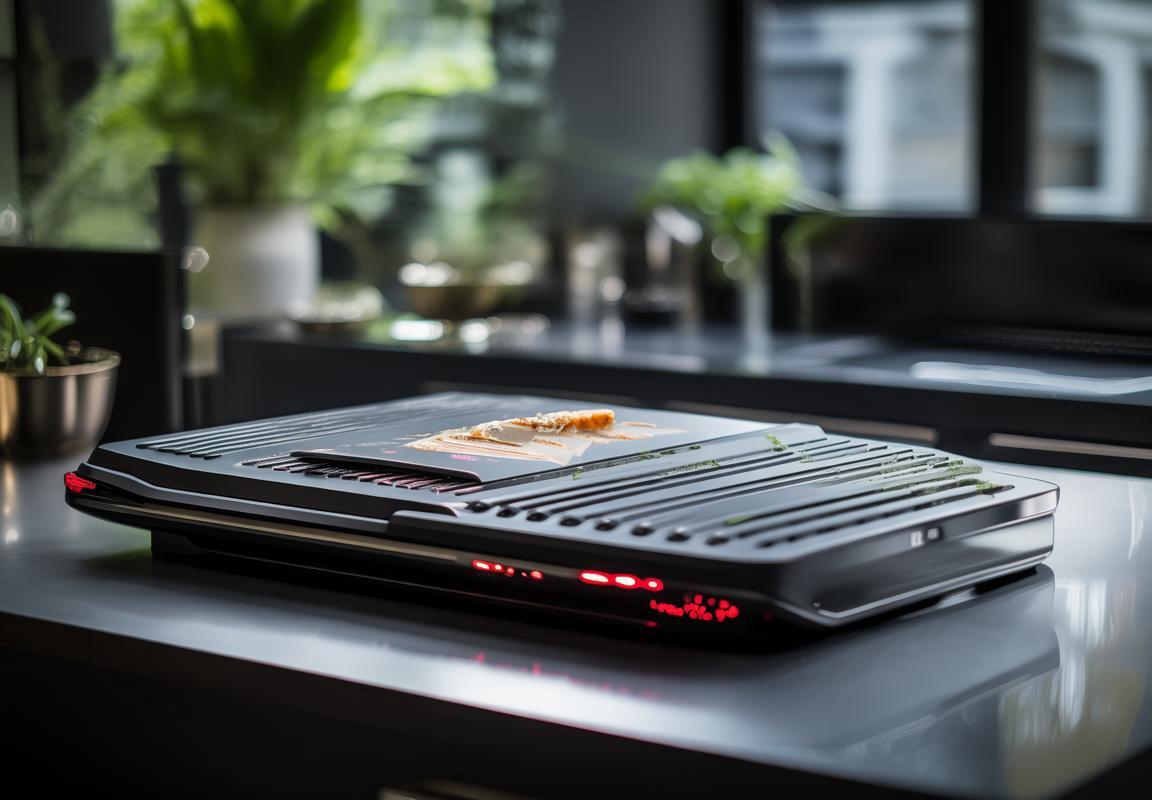
Conclusion: The Role of Private Label in the Contact Grill Industry
The private label segment within the contact grill industry has seen a significant surge in recent years, reflecting a shift in consumer preferences and market dynamics. As the market continues to evolve, understanding the role of private label products in this space is crucial. Here’s a closer look at the dynamics shaping the industry:
Private label contact grills often cater to a diverse set of customers, each with unique needs and preferences. From budget-conscious shoppers to those seeking specialized features, the market has become increasingly segmented. For instance, families might prioritize durability and ease of use, while health-conscious consumers might look for models that offer healthier cooking options, such as non-stick surfaces or adjustable heat settings.
The rise of private label contact grills can be attributed to several key factors. One significant driver is the growing consumer interest in home cooking and meal prepping. With the increase in busy lifestyles, many individuals are seeking convenient and efficient cooking solutions that can be easily integrated into their daily routines. Private label brands often offer these solutions at a more accessible price point, making them an attractive option for cost-conscious consumers.
Moreover, the trend towards healthier eating habits has played a pivotal role in the popularity of private label contact grills. These products often come with features that allow for healthier cooking methods, such as grilling, which can be a healthier alternative to frying. This aligns with the broader shift towards healthier lifestyles and has made private label grills a more appealing choice for health-conscious shoppers.
In terms of design and functionality, private label contact grills have also evolved to meet the changing demands of consumers. Many models now come with features like adjustable temperature controls, removable parts for easy cleaning, and even built-in timers. These enhancements have not only made the grilling process more user-friendly but have also contributed to the segment’s growth.
The competitive landscape of private label contact grills is diverse, with a range of brands vying for market share. While some private label brands are associated with major retailers, others operate independently. Notable players in the market include national supermarket chains, discount stores, and online retailers. Each of these entities offers its own line of private label contact grills, often with unique selling points that differentiate them from their competitors.
One key aspect of the distribution channels for private label contact grills is the emphasis on convenience. Retailers are increasingly focusing on creating seamless shopping experiences for their customers, which includes offering a wide variety of private label products. This is particularly evident in supermarkets and discount stores, where private label items are often prominently displayed and easily accessible. Additionally, the rise of online shopping has opened up new avenues for private label contact grill sales, with many retailers offering their products through e-commerce platforms.
When it comes to what customers are looking for in private label contact grills, there are several key trends. One major focus is on ease of use and maintenance. Consumers are seeking products that are simple to operate and clean, which is particularly important for those with limited time or kitchen space. Another important factor is the versatility of the grill, as many customers look for appliances that can handle a variety of cooking tasks, from grilling meats to searing vegetables.
In terms of aesthetics, private label contact grills are also becoming more stylish and appealing. Retailers are increasingly offering designs that complement kitchen decor and provide a touch of sophistication. This has helped to broaden the appeal of private label grills beyond just price-conscious shoppers.
Despite the growth and popularity of private label contact grills, the market is not without its challenges. One significant challenge is the need to innovate and stay ahead of consumer trends. As the market becomes more saturated, private label brands must continually evolve their product offerings to meet the changing demands of consumers. This includes investing in research and development to introduce new features and technologies.
Another challenge is the competitive pressure from established brands. While private label products often offer competitive pricing, they must also compete on quality and brand reputation. Consumers are increasingly discerning and may be hesitant to purchase private label items if they perceive them to be inferior to branded alternatives.
However, despite these challenges, there are numerous opportunities within the private label contact grill market. One such opportunity is the expansion into new markets and demographics. As the popularity of home cooking continues to grow, there is a vast potential customer base that private label brands can tap into. Additionally, the rise of health-conscious eating habits presents an opportunity for private label brands to develop and promote products that cater to these dietary preferences.
Looking ahead, the future outlook for private label contact grills is promising. Predictions suggest that the market will continue to grow as consumer preferences shift towards healthier, convenient cooking solutions. The key to success for private label brands will be to stay attuned to these trends and to innovate their product offerings accordingly.
In conclusion, the role of private label in the contact grill industry is multifaceted. It serves as a cost-effective option for budget-conscious consumers, offers a wide range of features that cater to diverse needs, and provides an avenue for retailers to differentiate themselves in a competitive market. As the industry evolves, private label brands will need to continue to adapt and innovate to maintain their relevance and capitalize on the opportunities that lie ahead.